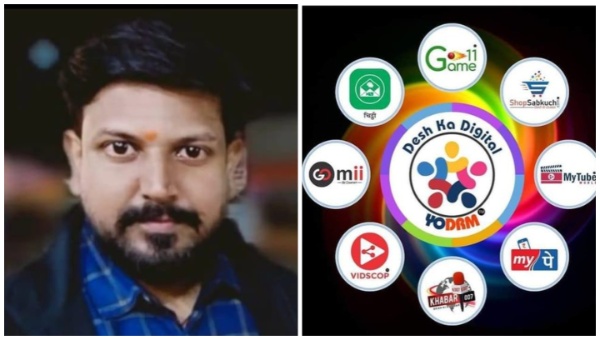Bhubaneswar: The OPID court, Balasore, on Saturday sentenced director of Digital Revolution Technologies Ltd Prince Kumar to seven years of rigorous imprisonment for duping hundreds of investors in Odisha of around Rs.1.5 crore by giving false assurances of high returns under its different schemes involving various digital/online products.
The court has also slapped Rs 3.33 lakh fine on him and in case of default, he has to spend one more year in jail.
The Economic Offences Wing (EOW), which claimed this to be the second fastest conviction, had arrested Kumar, a resident of Muzaffarpur in Bihar, from Brindaban in UP on May 18 last year on the allegation that his company had been duping hundreds of investors across Odisha since March 2020. The firm issued forged documents and misappropriated around Rs 1.5 crore invested by people from Odisha alone.
According EOW, the duped money is far higher as this company has investors spread in many states especially in Maharashtra, Bihar, UP, Delhi, West Bengal, Odisha, Chhattisgarh. “The company collected huge money from investors assuring them very high returns and misleading them that this company is running successful desi Indian version of Whatsapp, YouTube, Amazon, email, online/digital gaming, digital payment and Netflix kind of products,” the agency said in a release.
The company named/styled them as following:
- Shopsubkuch- Ecommerce Website.
- MYPay- mobile payment platform.
- MyTube world- App for watching movies etc.
- Vidscop- video sharing App.
- Chitthi- sharing messages/ chat. Voice call/ video call etc.
- GoGame11- Online gaming
It further said that Kumar conducted meetings at Balasore and Bhadrak in March 2020 and tried to convince the gullible investors by saying that his company wants to strengthen India through digital platforms and information Technologies (IT). He gave false assurances to the investors that investment amount would double within one year. “Kumar also promoted the schemes through YouTube, Facebook,” it said.
The investigation, however, revealed that the deposits collected by the company under direct digital marketing were nothing but Ponzi scheme. “It used a simple pyramid structure in which the early entrants earn money and as the number of investors/depositors increases, finding more investors to join becomes difficult or impossible and the scheme collapses at a point of time. Investors, those who joined late do not earn enough to cover their first outlay,” it added.








